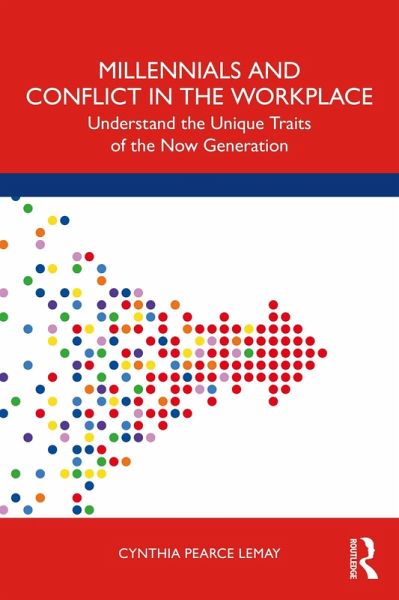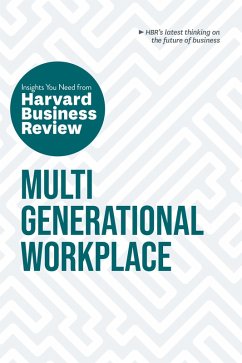
Millennials and Conflict in the Workplace (eBook, ePUB)
Understand the Unique Traits of the Now Generation
Versandkostenfrei!
Sofort per Download lieferbar
32,95 €
inkl. MwSt.
Weitere Ausgaben:

PAYBACK Punkte
16 °P sammeln!
This book unravels the mysteries and confusion surrounding Millennials. They are now the largest group in the labor force and their presence redefines the workplace for many organizations. Many older workers, who struggle to understand Millennials, often define them by stereotypes rather than their actual attributes. The historical and social events that occurred when Millennials were growing up are reviewed, which can result in traits and values specific to this cohort. The research behind this book explores the conflict styles of Millennials compared to Generation Xers and Baby Boomers - the...
This book unravels the mysteries and confusion surrounding Millennials. They are now the largest group in the labor force and their presence redefines the workplace for many organizations. Many older workers, who struggle to understand Millennials, often define them by stereotypes rather than their actual attributes. The historical and social events that occurred when Millennials were growing up are reviewed, which can result in traits and values specific to this cohort. The research behind this book explores the conflict styles of Millennials compared to Generation Xers and Baby Boomers - the unique strategies they are likely to use to address conflict in the workplace. This book shares the results of interviews and focus groups providing first-hand accounts from Millennials and non-Millennials about their work interactions. And the results from approximately 11,000 test-takers of the Thomas-Kilmann Conflict Mode Instrument provide fascinating findings about generational differences in conflict styles. Millennials grew up with technology at their fingertips and tend to avoid conflict and seek advice from their online support groups. The book will also dig into Millennials' powerful use of social media and how they use it to further their causes. They have a strong desire to know what's happening now and find it difficult to "turn off." This book explores generational differences and finds an increase in unassertive styles in Millennial males. This work shares what Millennials want and value in a workplace and what employers can do to recruit and retain this valuable cohort. Millennials' diversity, political and social engagement, and the implications for the broader society are explored. This research fills an important gap in the research on generational cohorts and conflict management and provides valuable information to scholars and practitioners alike.
Dieser Download kann aus rechtlichen Gründen nur mit Rechnungsadresse in A, B, BG, CY, CZ, D, DK, EW, E, FIN, F, GR, HR, H, IRL, I, LT, L, LR, M, NL, PL, P, R, S, SLO, SK ausgeliefert werden.













